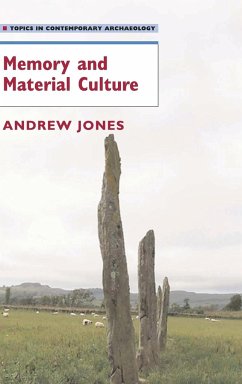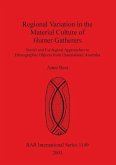We take for granted the survival into the present of artifacts from the past. Indeed the discipline of archaeology would be impossible without the survival of such artifacts. What is the implication of the durability or ephemerality of past material culture for the reproduction of societies in the past? In this book, Andrew Jones argues that the material world offers a vital framework for the formation of collective memory. He uses the topic of memory to critique the treatment of artifacts as symbols by interpretative archaeologists and artifacts as units of information (or memes) by behavioral archaeologists, instead arguing for a treatment of artifacts as forms of mnemonic trace that have an impact on the senses. Using detailed case studies from prehistoric Europe, he further argues that archaeologists can study the relationship between mnemonic traces in the form of networks of reference in artifactual and architectural forms.
Hinweis: Dieser Artikel kann nur an eine deutsche Lieferadresse ausgeliefert werden.
Hinweis: Dieser Artikel kann nur an eine deutsche Lieferadresse ausgeliefert werden.








